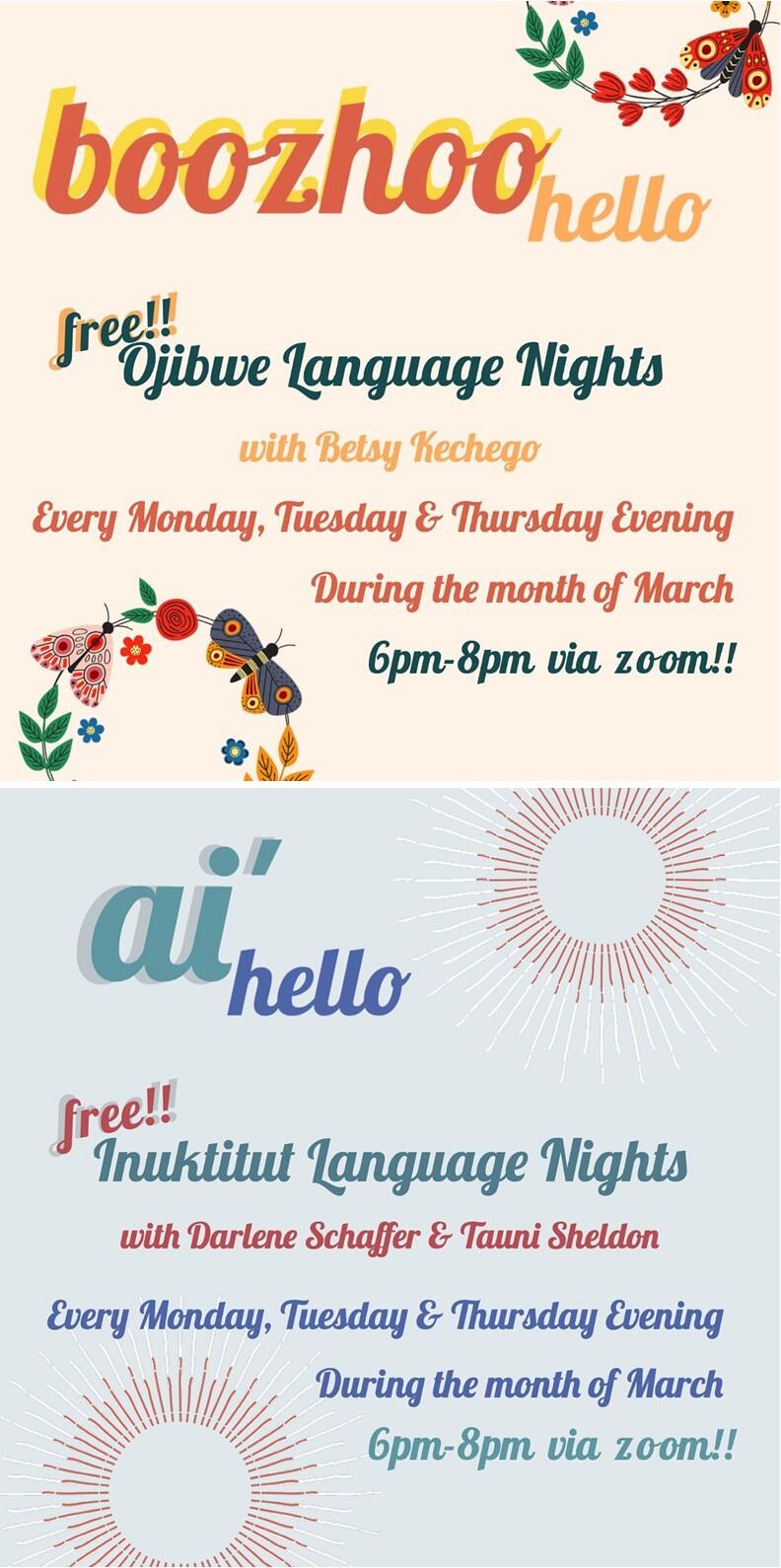Conestoga’s Aboriginal Services (Be-Dah-Bin Gamik) is providing free online language nights during March as part of an Indigenous language revitalization project at the college.

Open to the public, workshops are offered three nights a week in both Ojibwe and Inuktitut and provide an opportunity for the community to learn and celebrate as part of efforts to protect and renew Indigenous languages.
“We try to revive a lot of our ceremonies and cultures and include them in the education we deliver,” said Myeengun Henry, manager of Aboriginal Services. “The language nights invite people to come and learn while bringing communities together and introducing others to languages they probably are not used to hearing.”
Ojibwe and Inuktitut were chosen to represent just two of the communities in the region, with a growing number of Inuit living in southwestern Ontario. Workshops are not structured, allowing participants to join as they can, and are led by Elders and members of the community, including Darlene Schaffer -- a 2018 graduate of Conestoga’s Office Administration - Executive program.
In addition to the language nights, Be-Dah-Bin Gamik will also host a virtual conference at the end of the month. The three-day event will feature speakers as well as singing, dancing and storytelling to celebrate Ojibwe and Inuit cultures. The team plans to also have traditional food from Nunavut distributed to participants. Both initiatives are part of Be-Dah-Bin Gamik’s Indigenous language revitalization project at the college and funded by Canadian Heritage.
Reports indicate that Indigenous languages in Canada are in danger of disappearing with a growing decline in fluency. Assimilative policies and practices over generations have impacted and disrupted intergenerational transmission of culture. The Truth and Reconciliation Commission’s calls to action highlight the collective effort needed to preserve, revitalize and strengthen Indigenous languages.
“Language revitalization is a huge part of reconciliation and I think the one aspect that continuously gets overlooked because of the amount of work that has to go into it,” said Christina Restoule, support at Be-Dah-Bin Gamik. “It’s a specialized skill that is almost extinct, and a lot of the speakers that are fluent and have the ability to teach and teach it well, you’re asking them to come out of their communities and into urban centres to teach the rest of the population, and that can be challenging. With everything moving online over the last year, we have an opportunity here to have speakers teach and share their specialized skills remotely.”
Providing easier access to speakers, including at no cost, will be a key component as Be-Dah-Bin Gamik looks to continue to engage with Indigenous and non-Indigenous communities to strengthen language knowledge.
“It’s crucial that we offer programs like these,” said Henry. “We’re losing languages quite rapidly, and there’s a real danger in not taking on this role that our next generation will be less able to speak Indigenous languages.”
Conestoga’s Be-Dah-Bin Gamik, a Place of New Beginnings, provides services and ongoing supports for Indigenous students to assist with a smooth transition to college life. Services include a range of social and cultural events and activities, traditional counselling, and Elders-in-Residence programs.
Visit Be-Dah-Bin Gamik on Facebook to learn how to participate in the language nights. For more information about the language conference, contact Christina Restoule.
